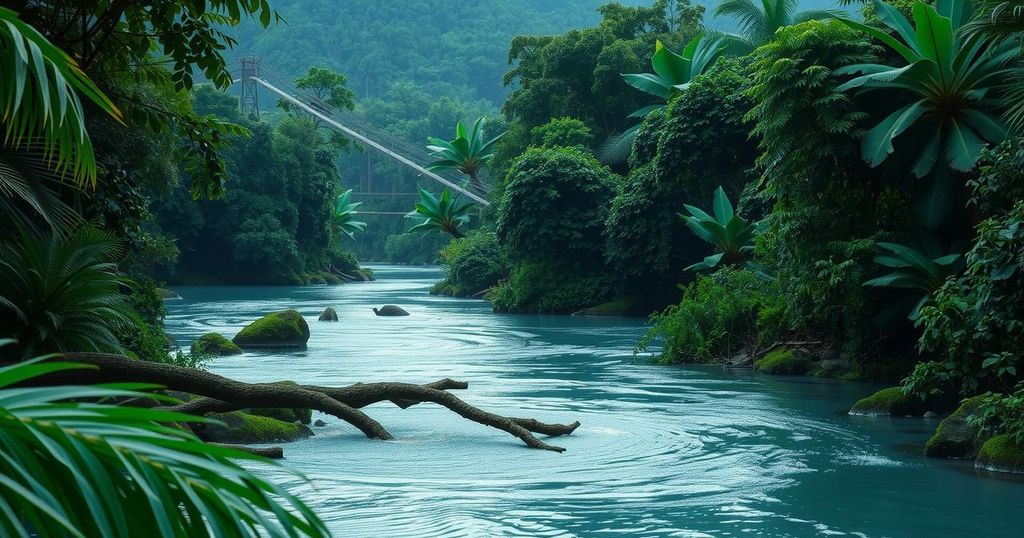World news
AMAZON, ASIA, BELEM, BRAZIL, CLIMATE CHANGE, COM, DEFORESTATION, DENMARK, DISASTER MANAGEMENT, DOMINICAN REPUBLIC, EUROPE, INDIA, JULIAN, JULIANO SCHIRMBECK, NATURAL DISASTERS, NDTV, NDTV. COM, NORTH AMERICA, PANTANAL, PARA, RHODE ISLAND, RIO DE JANEIRO, SOUTH AMERICA, US, WATER MANAGEMENT
Jamal Robinson
0 Comments
Brazil’s Freshwater Crisis: Surface Water Loss Amid Climate Change
Brazil, home to 12 percent of the world’s freshwater, is experiencing a significant decline in surface water due to climate change and deforestation. A recent report reveals a loss of 400,000 hectares of natural water between 2022 and 2023, with the Amazon being severely affected. Urgent action is needed to address these trends ahead of COP30 in November.
Brazil possesses 12 percent of the world’s freshwater resources, predominantly located within the Amazon. However, a recent report indicates a significant decline in natural surface water due to climate change and the conversion of forests to agricultural lands. From 2022 to 2023 alone, Brazil lost 400,000 hectares of aquatic surface, an area comparable to Rhode Island.
Over the past 16 years, there was only one year, 2022, when Brazil experienced an increase in surface water, while the country has lost approximately 2.4 million hectares of river and lake surface since 1985. Factors contributing to this loss include drought, urban development, and excessive aquifer pumping.
Juliano Schirmbeck, coordinator of the MapBiomas Agua report, emphasized that the current trends in land use and severe climate events stemming from global warming are causing increased aridity in Brazil. He noted that the data highlights the urgent need for adaptive water management strategies and public policies aimed at reversing these adverse trends.
In November, Brazil will host the COP30 UN climate conference in Belem, located in the Amazonian state of Para. Almost two-thirds of Brazil’s surface water is found in the Amazon, which plays a vital role in climate regulation by absorbing carbon dioxide. The report reveals that last year, surface water in the Amazon diminished by 4.5 million hectares compared to the previous year, nearly the size of Denmark.
The Pantanal wetlands, critically affected by drought and wildfires in 2023, reported water surfaces approximately 61 percent below the average since 1985. Although human-made bodies of water, such as reservoirs and dams, have expanded by 54 percent since 1985, this increase has not sufficed to mitigate the loss of natural freshwater resources.
Overall, the report underscores the urgent repercussions of climate change and land conversion on Brazil’s surface water resources, emphasizing the necessity of prompt and effective intervention strategies.
In summary, Brazil faces a significant decline in its natural surface water due to climate change and extensive land conversion. With alarming statistics highlighting the loss of both river and lake surfaces over the years, urgent attention to adaptive water management and public policy is vital. As the country prepares for COP30, the need for solutions to combat these environmental challenges is more pressing than ever.
Original Source: www.ndtv.com




Post Comment